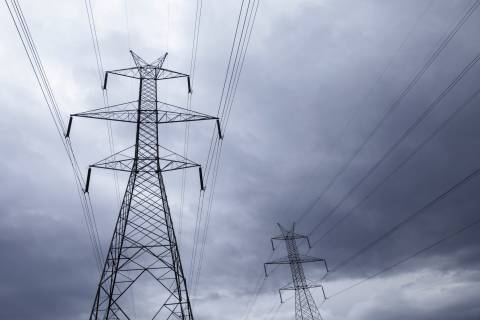(Bloomberg) -- The European Union is moving closer to proposing a temporary overhaul of the electricity market by limiting prices of gas used for power generation even as pressure mounts for the bloc to impose a broader cap.

EU energy ministers gathering in Prague on Wednesday will consider that model, which has already been adopted by Spain and Portugal, allowing consumers to avoid the worst of the price surges. However, some nations including Germany remain skeptical, fearing a cap could spur demand at a time when the EU needs to curb its thirst for Russian gas.

Germany and the Netherlands plan to say that any such measure will need to be considered “very carefully” and ensure that the burden is shared between countries, according to a draft document seen by Bloomberg. They favor immediate EU joint purchases of gas to stop countries out-competing each other, as well as stiffer demand-reduction targets.
With winter approaching, time is running out to reconcile those differences. Energy Commissioner Kadri Simson will present a more detailed roadmap to ministers in the Czech capital on Wednesday. The plan could include possible proposals on a decoupling of the electricity market, as well as measures on gas procurement that would then be discussed by EU leaders at a summit on Oct. 20-21.
“There’s a short-term race to build up larger consensus,” said Maximo Miccinilli, head of energy and climate at the consultant firm FleishmanHillard EU. “They can agree on the principle of decoupling gas from electricity, but they need time to understand how to do it.”
The aim is to have energy ministers reconvene at an emergency meeting next month to sign off on the measures needed to cushion citizens against the unprecedented energy crunch. The bloc has already imposed windfall taxes on energy companies’ profits and agreed power and gas-demand reduction goals.
“I struggle to see a clear sense of direction and do not see a consensus on caps,” said Simone Tagliapietra, a researcher at the Bruegel think-tank in Brussels. “The Spanish system temporarily expanded at EU level might be the only feasible way forward at this point,” referring to the Iberian model of capping gas prices in electricity.
Fresh issuance of joint debt to help accelerate the transition from Russian fossil fuels is becoming a possibility amid signs of German Chancellor Olaf Scholz reversing the country’s steadfast opposition. The Commission is also working on a proposal to set up a complementary benchmark to the continent’s key Dutch Title Transfer Facility to ensure a less volatile market.
As the bloc edges toward a price cap on gas in electricity generation, agreement on a broader cap will take longer due to its complexity, according to a senior EU official with knowledge of the matter. The main challenge is to ensure that any ceiling is low enough to reduce prices for consumers and businesses, but high enough to still attract gas supplies on the global market.
Last week, Italy, Greece, Poland and Belgium proposed limiting soaring natural gas costs by introducing a corridor or range around a cap on prices at the region’s biggest trading hubs. But other countries, like Germany, say they prefer to negotiate with friendly gas suppliers to bring the price down without jeopardizing flows.
Joint procurement would also help fill gas storages from March, after they are depleted during the winter, the Commission said last week.
At the same time, Germany has come under the spotlight for its €200 billion ($194 billion) package to help cushion the blow of the energy crisis, raising concern that countries will try to out-compete each other in aid measures, rather than take a unified response.
More stories like this are available on bloomberg.com
©2022 Bloomberg L.P.
Author: John Ainger
